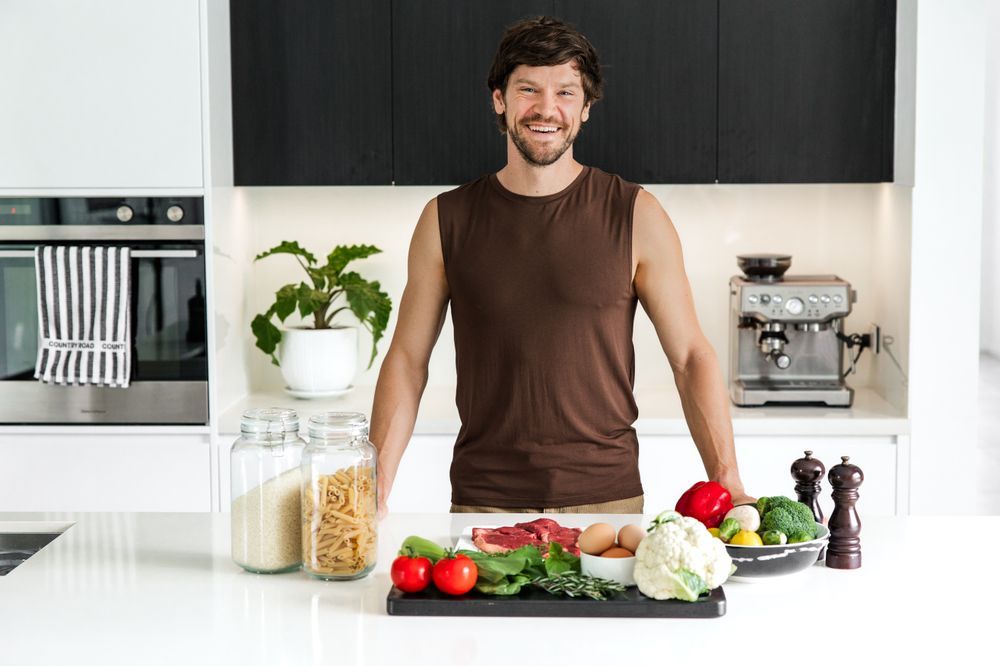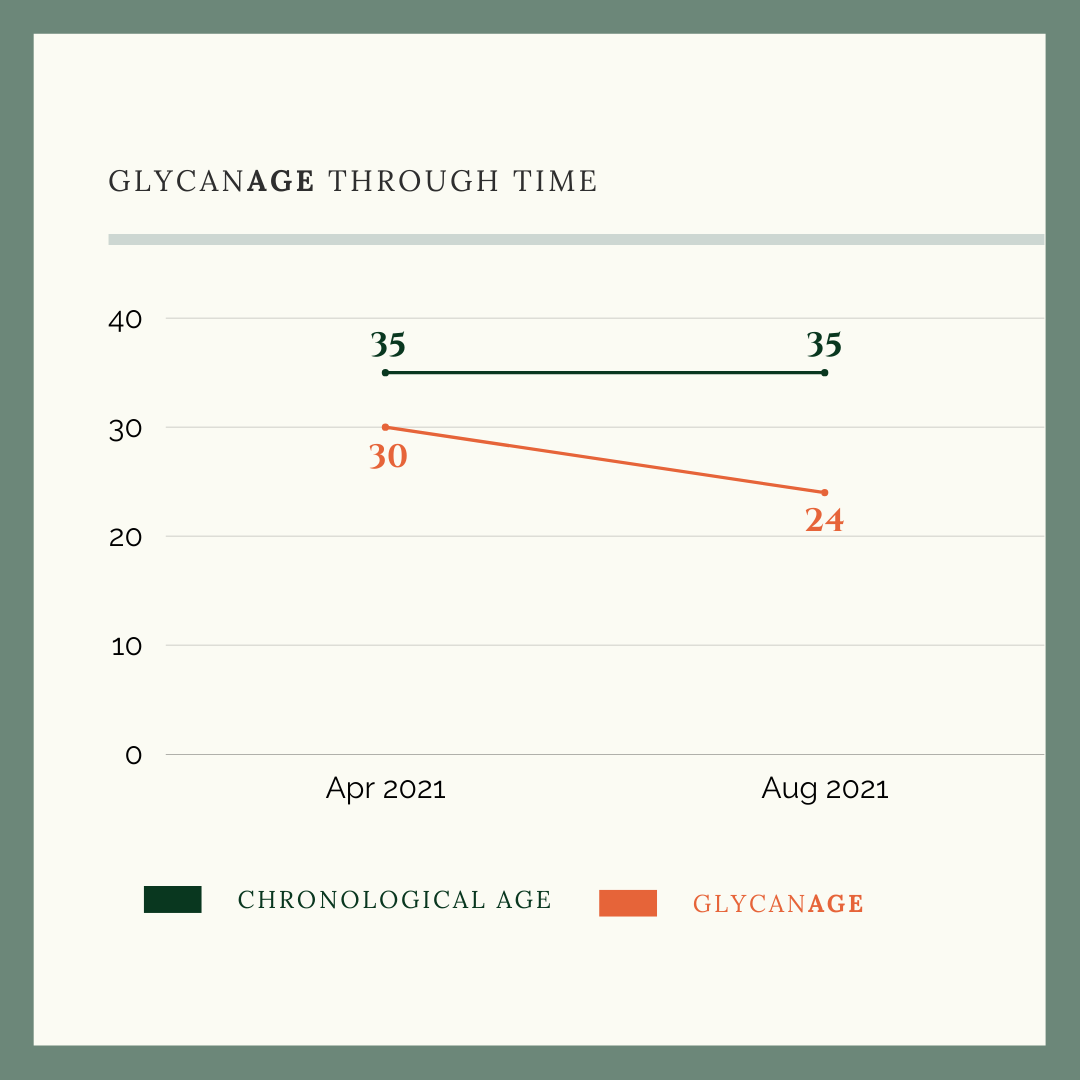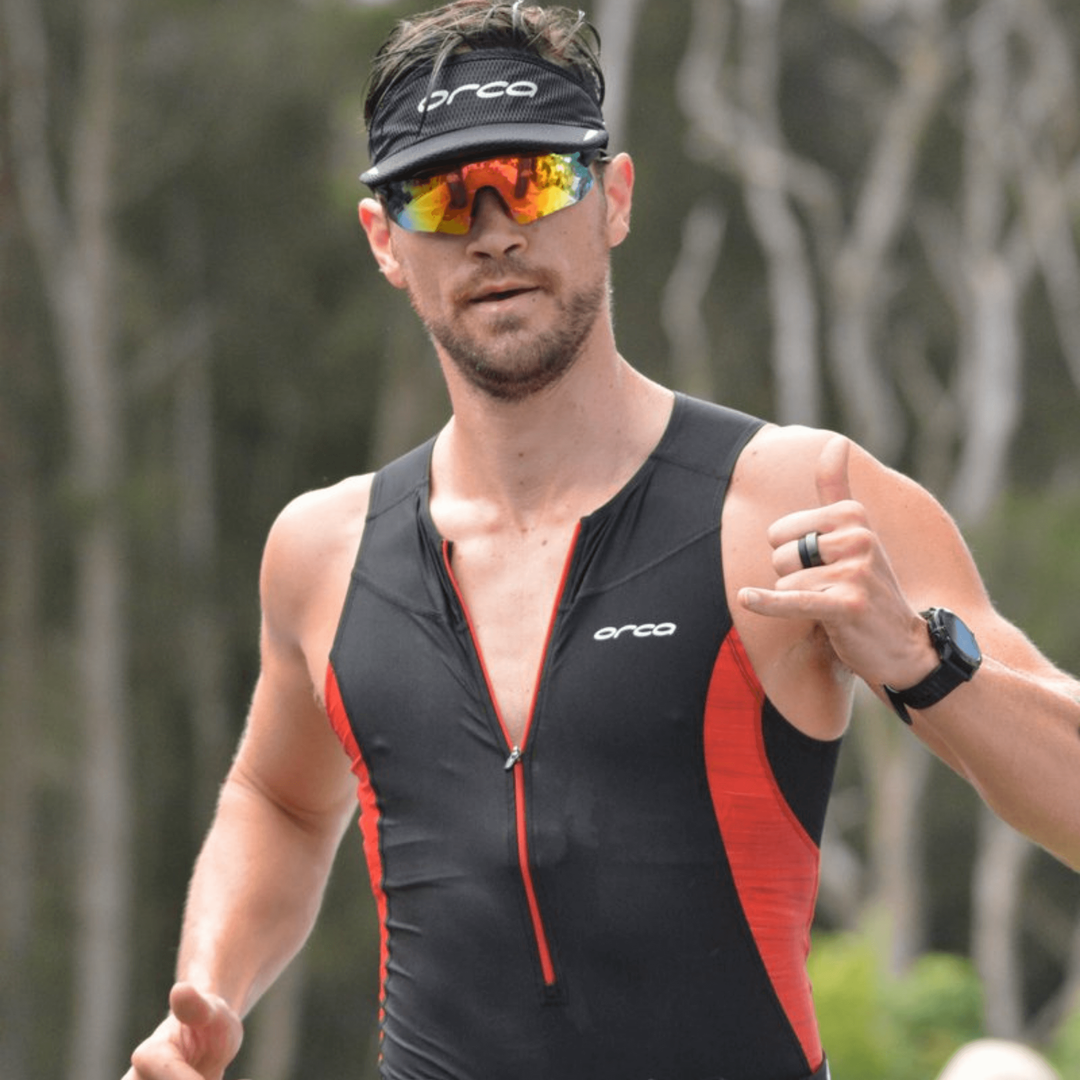How a Son's Love for His Parents Turned Into Biohacking
Are you ready to get emotional? Let us introduce you to Faraz Khan, a longevity expert with a story that will warm your heart and tips and trick you can use to start your health journey today.

By Vanja Maganjić

If you’ve been following our interviews with biohackers, you know that every one of them has an inspirational story about how they got started on their health journey. Today’s interview is no exception, but there is more to Dr. Nick Engerer than meets the eye.
His focus is on experimenting with different variables that can help him achieve longevity and bring down his GlycanAge. Learn more about his latest experiment in the interview below.
Nick, it’s so nice to meet you. Can we start by talking a bit about your interesting experiment and how GlycanAge played a part in it?
Yeah, for a long time, I’ve been interested in the ageing process and I wanted to find a powerful tool for assessing my own ageing and overall health. What I find really interesting is that this concept is still being proven. This is why I like to embark on self-experiments to show whether or not these tools can be used in that fashion. And through my work, I can confidently say that GlycanAge is a truly valuable test that responds to improvements in your health.
So using that same concept I ran a self-experiment by measuring my biological age before and after. When you conduct a self-experiment you need to start with a proper hypothesis and it was important for me to do that in a way where I have the potential to change my biological age. I chose to engage with my diet.
When I was interviewing Professor Gordan Lauc, who is the brains behind the GlycanAge tests, I got a better understanding of how glycans work in the body. I also read this amazing book by Dr. Jenna Macciochi - Immunity The Science of Staying Well which I would recommend to anyone interested in bettering their health.
These two things made me think about how the food we eat affects our immune systems. That’s where the idea to change my diet in a way that gave my body more information about my environment came from. I wanted to increase the diversity of plant foods I eat.
This concept was first suggested by Dr Jenna in her book, saying that if you eat 30 plus plants a week, you're giving your body and your immune system, more information about the environment around you. So your body needs to learn that food is good and that other stuff like dust, allergens, mould, or bacteria are bad.
Not all bacteria of course, but foreign hostile bacteria. Those are bad and your immune system should attack that. But you don't want your body attacking the food. So by increasing the diversity of food you eat, you can actually have your immune system be more friendly to your body because it's not trying to attack the food that's getting into your bloodstream and causing inflammation.
So basically, for 3 months I tried eating 30+ plant-based foods per week, with the hypothesis being that it will improve my GlycanAge because it will reduce inflammation, which is what your test is measuring.
That's amazing. Was there a specific event that motivated you to conduct these experiments?
This is what I do for fun, I find this very interesting. And for some reason, I put it on the internet. I think it’s important to put things like these online because if something interesting happens, then it's valuable information. Other people can try the same thing and better their health.
My GlycanAge results went down, meaning I’m biologically younger and my body is less inflamed. I won't age as quickly because I made that positive change in my diet. Seeing the results gives me the motivation to go forward.
That's what's so valuable about these tests because there are so many different lifestyle interventions - types of diets, supplements, exercise, and more that you can opt for, but you won’t know if they’re the right choice for you unless you have a way of measuring them.
I'm trying to eat 30-plus plants a week still, even though I'm not running that experiment because I know it's improving the information in my body and keeping my GlycanAge low.

So tell me, were there any surprises at the end of the experiment?
The result honestly surprised me because no one had told me how to do this experiment. I had to pull together information from different places and come up with my own hypothesis, and my own framework, and give it a try. And honestly, when I saw that my GlycanAge dropped by six years, I was really surprised.
I mean, that is a huge change. I knew that there was a good possibility I would improve, but I did not expect it to change the information in my body that much. That was absolutely a very pleasant surprise because it showed me my experiment worked and it gives a good reason for other people to try the same.
I agree with that sentiment. What was the most challenging part of it?
Well, it was interesting because the first week that I started recording how many different plants I was eating, I got about five days in and realized, Oh, I don't even have 20 plants yet. So I had to get creative.
And in particular, whenever I'd go out to eat with friends or family, I'd have to look at my plant list on my phone. I definitely made different choices than I would have made, I would choose something that gave me plants I hadn't eaten yet. So that change in my habits was the most challenging part, in my opinion.
Have the people in your life been asking for advice after the experiment?
Diet is a very common conversation. I get asked questions about diet by strangers and acquaintances all the time. I don't know why they like to ask me, but I always make sure to tell them to eat a lot of different types of plants.
And not just any types of plants. I also pay attention to which plants my body likes. So my body does not like red onions. It makes my stomach hurt. You need to know within reason what your body likes. But in general, eating more different types of plants that your body likes is something that I tell people as a way to improve their diet. It's actually kind of fun.
What attracted you to the GlycanAge test, as opposed to other biological age tests like these?
I really admire when I see young women CEOs working in the longevity space because they're often leading some of the coolest companies. I don't know what it is about these female founders and longevity, but if you see an outstanding female CEO, in the longevity sector go give their company a look because they've got some brilliant ideas and they're really moving the needle.
So basically I asked Nikolina if she would be interested in being interviewed for my blog and she was very responsive. And then she suggested that I talk to Gordan as well.
I went to interview him, and it was clear that this technology had some really interesting differentiators compared to other biological age tests. It's the reason I got interested in it.
GlycanAge tests give you a lot of information about what's happening in your body. So it's a combination of things - being impressed by the leadership, seeing the uniqueness of the technology, and then the fact that it gave more than just age, it gave me a lot of insight into what's happening with inflammation in the body, which is so important with ageing.
What first got you into biohacking?
My route into biohacking went through the proactive healthcare technology route. I had a number of people in my life get diagnosed with cancer when I was in my late 20s. It was close friends and even my wife at the time and that shook me. I couldn't believe that young people could get such severe cancers and have to fight for their life.
Luckily everyone survived and went through remission, which is a great thing. I know that's not often the case. I started actually getting interested in some of the new technologies that were detecting cancer at a very early stage. Things as full-body MRIs, brain MRIs, the merging types of blood panels that can detect tumour markers in the body, and more.
And I started to form a view that with the right mix of these technologies, we could stay healthy because we humans can cure almost any disease if it's caught early enough. We actually have the technology to provide every human that wants it. A full-body MRI, a full blood panel - we can do that. We have the technology available now. That's what got me interested in the biohacking space, and that's where I started.
I'm thankful to hear that everyone is doing good now. These types of stories are unfortunately often told in the biohacking sphere. Is this where your experiments with diet originated?
I've been experimenting with diets for quite a long time, so I have tried almost every diet except for the carnivore diet. I'm not joking, I've done the Mediterranean diet, vegetarian and vegan diet, keto, fruitarian diet, I've done the standard American diet - eat whatever you want type thing and such.
And I would say that not every diet worked for me. Keto left me with high cholesterol levels and I didn't feel great. I had low energy and as soon as I went back to eating carbohydrates, I felt way better.
Now I try to have different stuff all the time, and I think diversity is the key to a great diet.

You talk a bit about controlling stress in your experiment. Can you share how you manage stress in your everyday life? And do you have any tips for our readers?
I don't have a stress-free life by any means. I'm running a company of 12 and I have a son who's eight years old and demands my time. I am a triathlete, so I'm always training. So it's not easy.
For me, exercise is huge. If I don't get exercise, I feel such high levels of stress. It really helps me get that out. I find that taking a walk in nature is tremendously calming. It's often the first thing I do in the morning, it’s really great for stress.
I've been meditating for more than 10 years, so I'll turn to meditation if I need that peace of mind. If I have been feeling overwhelmed, I'll do some box breathing, for example. That's an excellent tool for calming yourself down. But in general, if you want to manage stress well in your life, you've got to learn to self-monitor.
You have to learn to ask yourself - How do I feel? Am I well now? Tune in and see if you do feel stressed.
I think the biggest challenge that we have in the modern lifestyle is that we need to get good at switching off. And it's because we're on all day and we're constantly being stimulated by the environment.
I live in the woods and I'm surrounded by nature, but my business is in a big city and I often fly back there to visit my team and work with them. And every time I go, I get hit by bright lights all day long, loud sounds, pollution, advertising, people I don't know everywhere coming close to me, strange smells, and such.
And these modern environments that we have are constantly signalling to us to pay attention to something. You never get to switch off. I mentioned box breathing before it’s a fantastic tool because it allows you to calm down. Switching off at night to go to sleep is not something you just do. It's a process that takes an hour and a half and everybody is a little bit different. But you have to learn what's going to allow you to unplug and be able to go back to being relaxed. Play yourself some relaxing music if you need to. Whatever helps you calm down, start that process early.
Do you have any tips for biohackers who are interested in copying your experiment?
The first thing I would say is anybody who wants to do this experiment is - that you might not think of yourself as a biohacker, but you are. Because I want to take that term and make it for everyone.
I think biohacking is more broadly applicable. It's something we're all trying to do because we got wearables. I've got two different wearables on now giving me data about myself that I can then use to change my lifestyle for the better. That's biohacking, right? So anyone who thinks - Oh, I'd like to measure my GlycanAge, do an experiment and measure it again and see if that works for me, you're totally a biohacker and feel proud of it.
And the most important thing you can do is to try to control the experiment. Well, I write about this a bit in the blog posts that go into my experiment. I was able to really keep my sleep patterns pretty consistent. It's not possible to control the experiment completely, but I can at least know there weren't any major disruptions in my sleep.
I didn't start sleeping an hour less a night for a whole week. There weren't big changes in my resting heart rate variability. Those are things that you can know about sleep tracking. I get that data from my ring. There are lots of different options for doing that, so you have to keep a consistent sleep schedule.
You're continuing to do the same thing if you're going to a party on Friday night. Don't stop. Keep it consistent compared to what you did before the experiment. Same thing with stress. You know, it's harder to control stress because life isn't something that you can predict.
For example, for me, I was going to go for six months. And I stopped the experiment at three months because Australia went into a big COVID lockdown. It threw off my routine and added stress to my life. My son had to be homeschooled. That kind of change meant I needed to cut the experiment right then and there because stress couldn't be controlled anymore.
And then the other one is exercise. So if you're going to run this up experiment, don't change your exercise too much. Because then if you see the result, you won't know what it was. This is the concept of control in the experiment. I did it for three months and that was enough to see a six-year improvement. Three months is not terribly long to do a decent job controlling the experiment. The longer you run it, the harder it is to control.
I love how meticulous you were in your methodology. It really showed that you were serious about this. So my last question for you is, do you have any tips for biohacking newbies?
What I think is exciting for anybody I call a newbie is understanding that we have a lot of control over our health because health and technology are coming together. But once you start to understand that, you start to see that our lifespans are growing and that's going to continue and accelerate.
And the people who are looking after themselves today are going to be best positioned to live the longest, healthiest lives of any humans that have ever lived. It's a tremendously exciting time. So for newbies, I would say start with what feels good, do what you enjoy doing and most importantly, start getting regular exercise.
It doesn't have to be that terrible cardio class that you hate at the gym. The best thing you can do is to start walking. If you can walk a couple of times a day, a few thousand steps, that's a life-changing habit.
Tip number two would be to find a diet that works for you. Try to eat more of the vegetables you like. Start with the things you find delicious and eat more of those. Just make simple changes like that.
Most people try to do too many things at once, but if you think about what I said at the very beginning, this is a long journey. So just add one thing at a time and keep going in the right direction. That's what the newbies should be thinking about.
Follow Nick's blog for more exciting experiments and tips on health and longevity here.

By Vanja Maganjić

Start or continue your GlycanAge journey
Don’t be afraid to reach out to us and ask questions, provide commentary or suggest topics.
Other articles you may like:
Are you ready to get emotional? Let us introduce you to Faraz Khan, a longevity expert with a story that will warm your heart and tips and trick you can use to start your health journey today.
 By Vanja Maganjić
By Vanja MaganjićCan music be used as a biohack? Absolutely! Find out how to create a simple daily routine that will benefit your longevity, while also bringing you joy.
 By Vanja Maganjić
By Vanja Maganjić